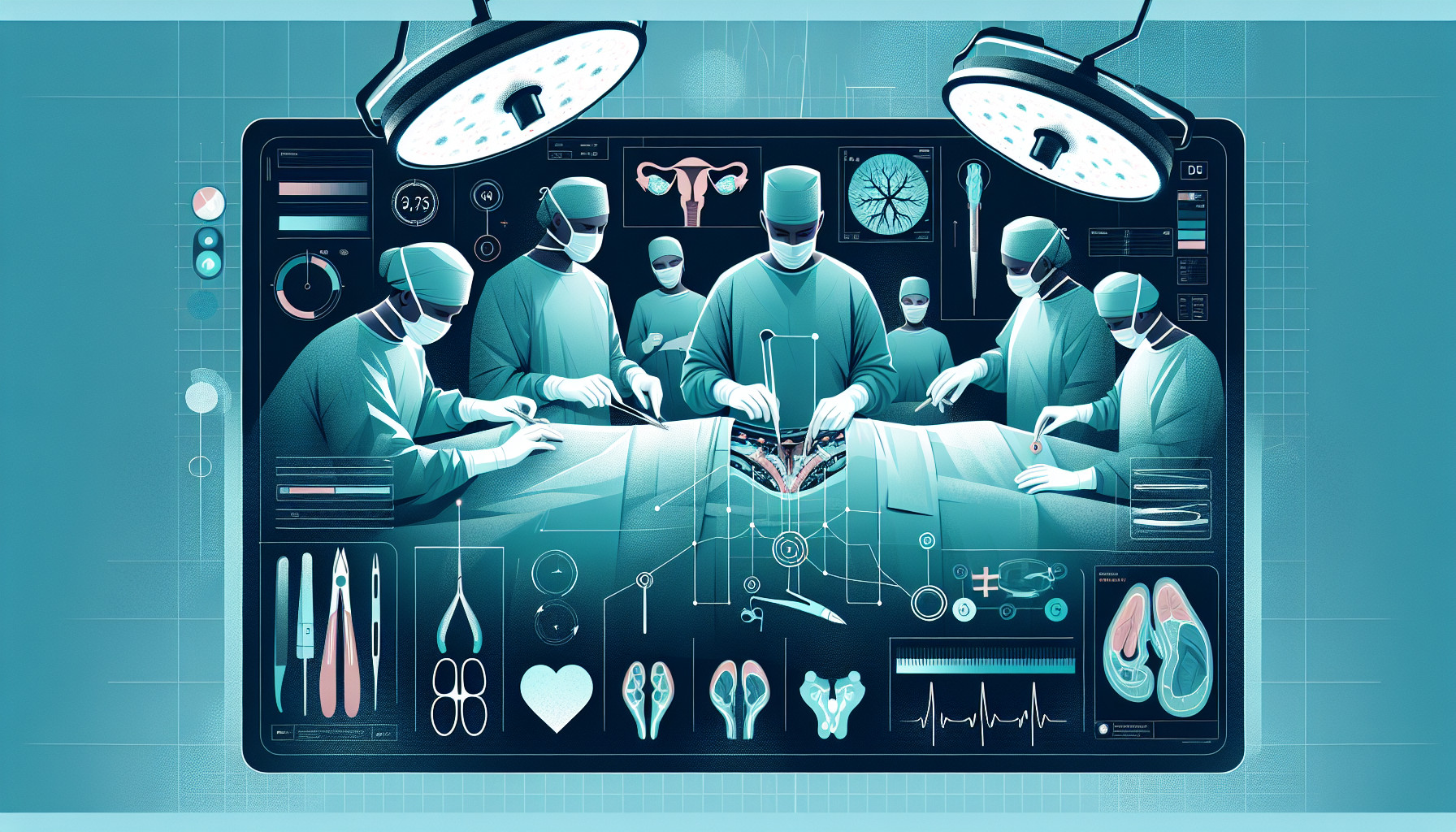Our Summary
This research paper reviews current knowledge about how obesity affects the results of cancer-related surgeries in the urinary system. In men having their prostate removed, being obese seems to increase the risk of bleeding during surgery, cancer returning, urine leakage, and erectile dysfunction after surgery. However, it’s unclear if using less invasive surgical techniques helps overweight and obese patients.
Similarly, obese patients having their bladder removed seem to have a higher risk of complications. However, obesity doesn’t seem to increase the risk of problems for patients having their kidney or the tube from kidney to bladder removed. But, the results are mixed for patients having part of their kidney removed.
In addition, being overweight or obese is associated with a higher risk of problems for patients having lymph nodes in the groin removed for penile cancer. There’s no information about the effect of obesity on patients having lymph nodes in the back of the abdomen removed for testicular cancer.
Despite some inconsistencies in the research and a lack of clinical trials, the evidence suggests that these types of cancer surgeries can be safely performed in obese patients. However, being obese does seem to increase the risk of problems in most of these surgeries.
FAQs
- Does obesity increase the risk of complications in oncological urologic surgeries?
- What are the implications of obesity on perioperative outcomes in radical prostatectomy?
- Is there any data available on the impact of obesity in patients treated with retroperitoneal lymph node dissection for testicular cancer?
Doctor’s Tip
A helpful tip a doctor might tell a patient about testicular surgery is to maintain a healthy weight before and after the procedure. Obesity can increase the risk of complications during and after surgery, so it is important to follow a balanced diet and exercise regularly to improve outcomes and recovery. Additionally, following the doctor’s post-operative care instructions and attending follow-up appointments is crucial for a successful recovery.
Suitable For
Patients who are typically recommended testicular surgery include those with testicular cancer, testicular torsion, or other conditions affecting the testicles that require surgical intervention. Testicular surgery may also be recommended for patients with certain types of benign tumors or cysts in the testicles.
Timeline
Before testicular surgery:
- Patient consultation: The patient meets with the urologist to discuss the need for testicular surgery, the risks and benefits, and the surgical procedure itself.
- Pre-operative testing: The patient may undergo blood tests, imaging studies, and other pre-operative evaluations to ensure they are healthy enough for surgery.
- Pre-operative instructions: The patient receives instructions on how to prepare for the surgery, which may include fasting before the procedure and stopping certain medications.
- Anesthesia consultation: The patient meets with an anesthesiologist to discuss the type of anesthesia that will be used during the surgery.
After testicular surgery:
- Recovery in the hospital: The patient is monitored in the recovery room after the surgery and may need to stay in the hospital for a day or two for observation.
- Pain management: The patient is given pain medication to manage any discomfort after the surgery.
- Follow-up appointments: The patient will have follow-up appointments with the urologist to monitor their recovery and discuss any concerns or complications.
- Return to normal activities: The patient will gradually be able to resume normal activities, with restrictions on heavy lifting and strenuous exercise for a period of time.
- Long-term follow-up: The patient may need long-term follow-up to monitor for any recurrence of the condition or complications from the surgery.
What to Ask Your Doctor
- What are the potential risks and complications associated with testicular surgery for someone who is overweight or obese?
- How might my weight impact the surgical procedure and recovery process?
- Are there any specific precautions or considerations that need to be taken for obese patients undergoing testicular surgery?
- Will my weight affect the success rate of the surgery or the long-term outcomes?
- Are there any lifestyle changes or interventions that could improve the outcomes of the surgery for someone who is overweight or obese?
- How will my weight impact the anesthesia and recovery process after the surgery?
- Are there any specific post-operative care instructions or follow-up appointments that are important for obese patients undergoing testicular surgery?
- What can I do to minimize the risks and optimize the outcomes of the surgery, given my weight status?
Reference
Authors: Abufaraj M, Mari A, Mansy K, Sievert KD. Journal: Curr Opin Urol. 2017 Sep;27(5):446-455. doi: 10.1097/MOU.0000000000000429. PMID: 28650867
